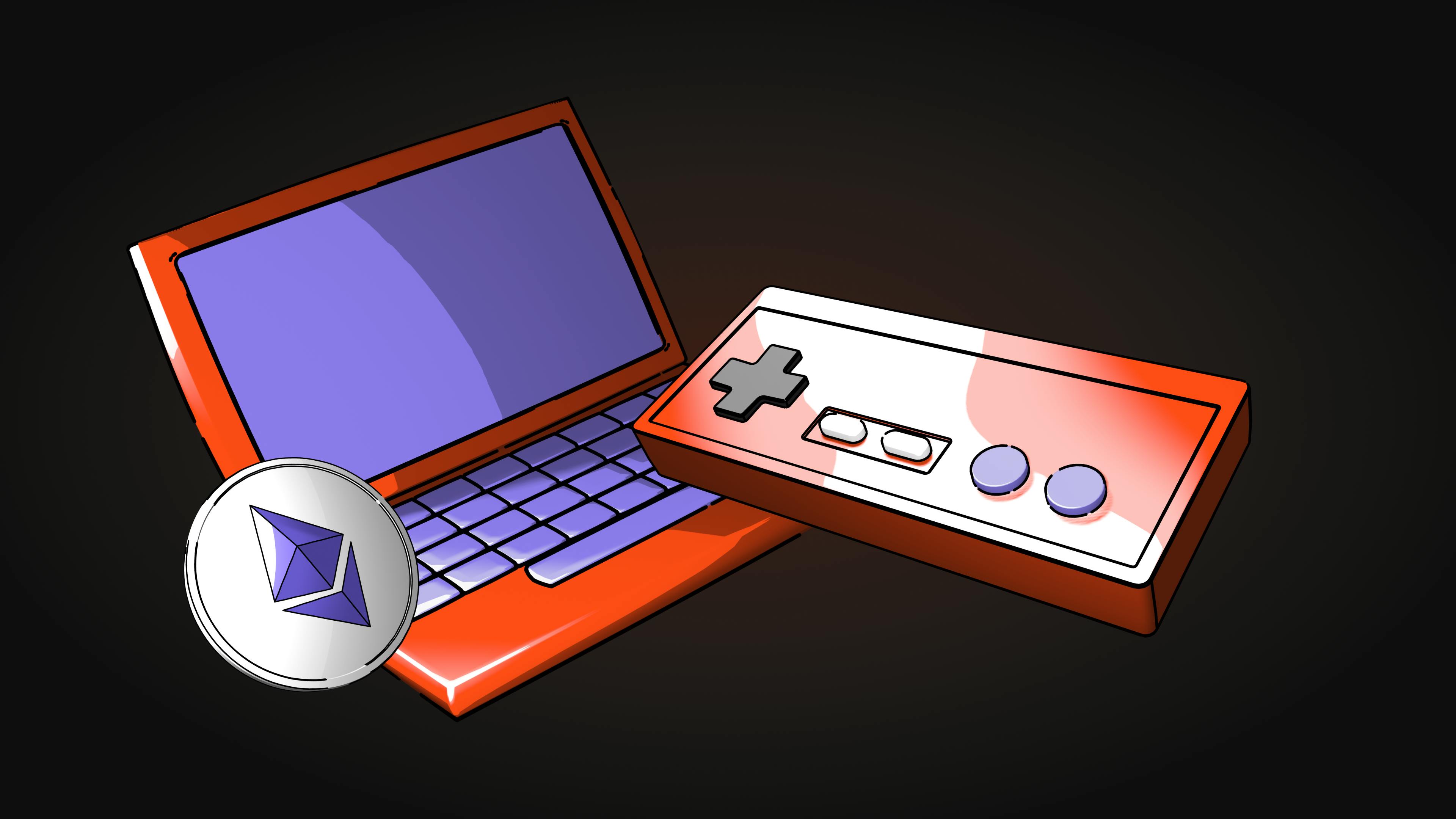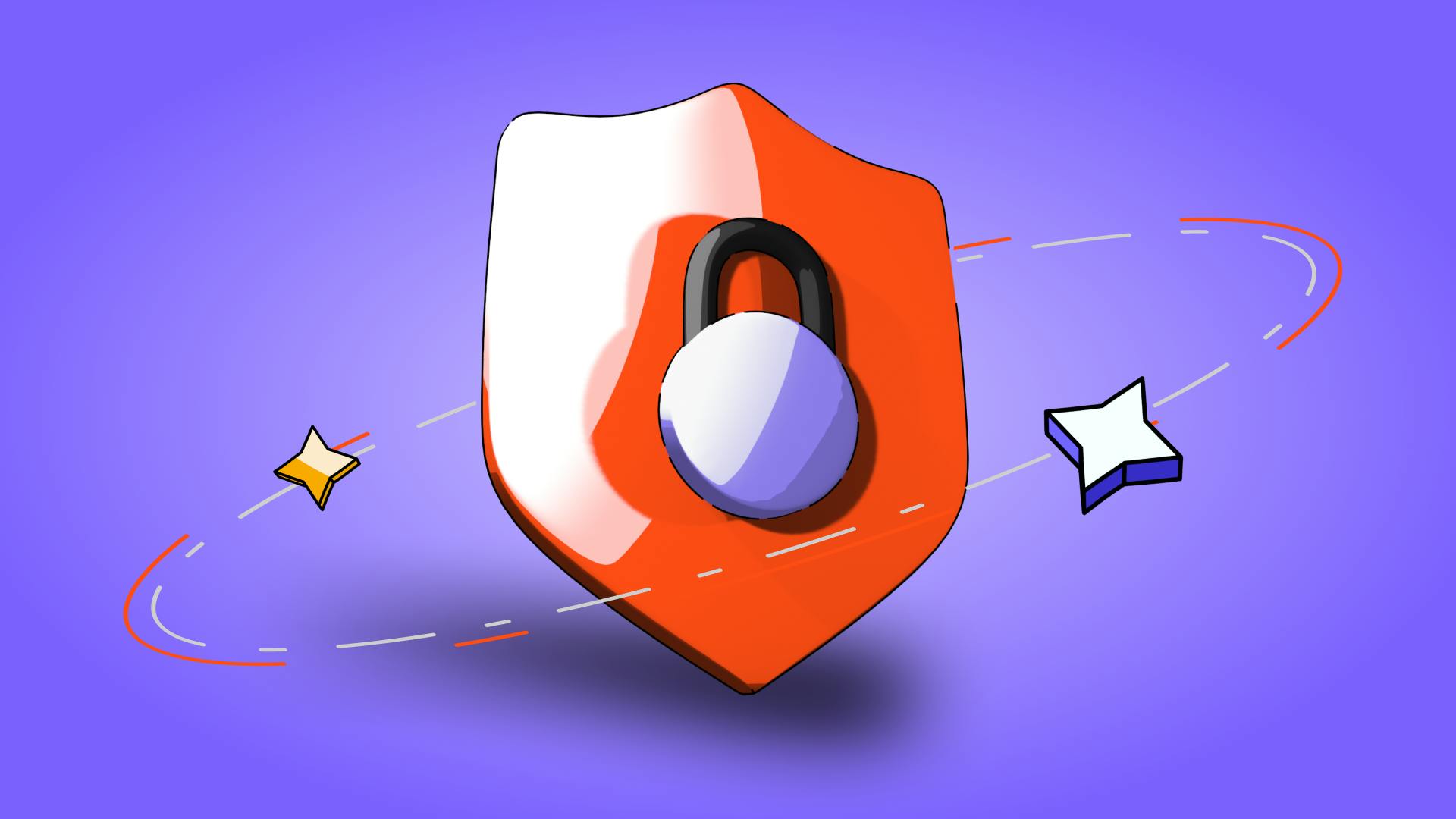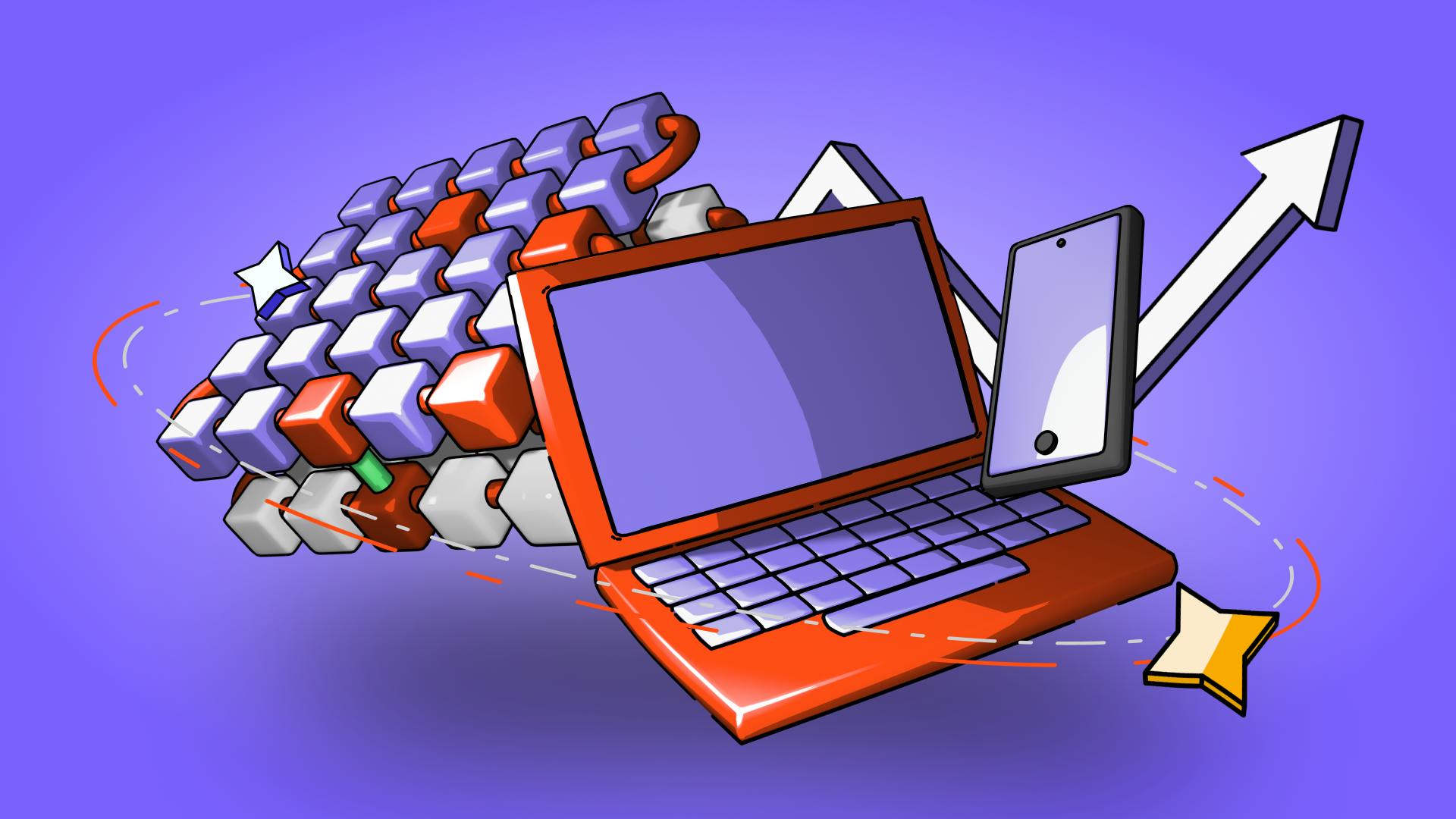The Rise of Crypto Gaming: Revolutionizing Video Games through Blockchain
December 5, 2025

by Kamil S
December 5, 2025
As the crypto and blockchain industries continue to evolve, their integration across various sectors is becoming increasingly prevalent. While some industries discover substantial benefits from adopting these technologies, others face radical disruption. Gaming is one industry that has witnessed a significant transformation through the emergence of crypto and blockchain.
Prior to the global expansion of these emerging technologies, the gaming industry had already established itself as a lucrative market, generating profits on par with the Hollywood film business and the music industry. However, it operated within a relatively closed ecosystem, where the majority of the benefits were reaped by professional players and teams.
While gaming was already a successful industry, the integration of emerging technologies like crypto and blockchain has brought about significant changes, opening up new avenues of opportunity and accessibility, transforming the gaming landscape into a more inclusive and diverse ecosystem. Simply said, the integration of crypto and blockchain is allowing players to engage in decentralized and transparent gaming experiences. With the introduction of digital assets and blockchain-based ownership, gamers of all levels now have the chance to participate, earn rewards, and monetize their skills and in-game assets.
This shift has democratized the gaming industry, breaking down barriers and creating a more level playing field. It has provided opportunities for new players, content creators, and enthusiasts to actively participate and benefit from the gaming ecosystem, nurturing a thriving landscape that provides multiple earning opportunities for all actors involved.
As the integration of crypto and blockchain continues to unfold, the gaming industry is poised for further growth, fostering innovation, collaboration, and equal opportunities for gamers worldwide.
Crypto gaming refers to the integration of cryptocurrencies and blockchain technology into the gaming experience. It allows players to use digital currencies for various in-game activities, including purchasing virtual assets, trading with other players, and earning rewards. These games are built on decentralized blockchain networks, ensuring transparency, security, and true ownership of digital assets. Moreover, by leveraging the decentralized nature of blockchain, smart contracts eliminate the possibility of tampering or manipulation, providing a trustworthy foundation for gameplay. These contracts automatically execute actions and transactions based on predefined conditions, enabling secure and transparent interactions between players.
One of the key advantages of crypto gaming is the concept of true ownership. Unlike traditional games where in-game items and currencies are controlled by the game developers, crypto games utilize blockchain's decentralized nature to empower players with full ownership of their virtual assets. Usually, these assets are represented as non-fungible tokens (NFTs) on the blockchain, making them unique, scarce, and verifiable.
The integration of blockchain also introduces new opportunities for players to earn income through gameplay. In some play-to-earn crypto games, players can earn valuable tokens or cryptocurrencies as rewards for their in-game achievements, which can be traded or converted to real-world value.
Furthermore, blockchain technology enhances the security and integrity of gaming experiences. By utilizing smart contracts, the rules and mechanics of the game are enforced automatically, eliminating the risk of fraud or cheating.
The tokenization process introduces numerous benefits in crypto gaming. Firstly, it enables true ownership of in-game assets, allowing players to buy, sell, and trade them securely on decentralized marketplaces in the form of NFTs. This fosters a vibrant player-driven economy, where virtual items hold real-world value, and drives creators to monetize their in-game output.
Additionally, tokenization enhances interoperability between games and platforms. Players can use their tokens across multiple games or even transfer them to other blockchain-compatible platforms. This seamless integration opens up exciting opportunities for cross-game collaborations and unique gaming experiences.
Transparency and security are another benefit of tokenization. The decentralized nature of blockchain ensures that token transactions are recorded on an immutable ledger, eliminating fraud and counterfeiting. Players can verify the scarcity and authenticity of their assets, building trust within the gaming community. Moreover, tokenized in-game currencies streamline in-game economies, making transactions faster and more efficient. With blockchain-based currencies, players can enjoy low-cost and near-instantaneous transfers, enhancing the overall gaming experience.
This sounds great, but what does it actually mean?
Imagine this: You’ve spent hours playing a game such as Decentraland, and now you have your own “land” (in-game real estate) that you have designed and customized solely according to your creativity. Moreover, you have also designed and created several in-game assets yourself, that are populating your land. Other players are paying you a visit, attracted by the glamor of your little cyber corner. Some users decide to buy some of your assets, while others decide to advertise (yes, real advertising) on your own real estate. For all this, you get rewarded with crypto assets that you can easily exchange in other currencies and walk away with real value at the end of the day. Something not entirely possible with conventional gaming.
As tokenization continues to gain traction, the gaming industry is undergoing a transformative shift. Players are empowered with true ownership, enhanced liquidity, and cross-platform flexibility. Developers have the opportunity to create immersive gaming ecosystems that blur the lines between virtual and real-world economies.

Do you remember those days when you used to dedicate countless hours battling that formidable final boss, pouring your heart and soul into the game? Just imagine how incredible it would have been to not only conquer the virtual world but also walk away with real cash as a reward for your dedication and skill. With the rise of play-to-earn crypto games, this dream has become a reality. Gone are the days of merely playing for fun. Now, you have the opportunity to earn tangible value for your gaming achievements. No longer is your time and effort in the game solely a labor of love; it's a pathway to financial empowerment.
In play-to-earn crypto games, players are rewarded with digital tokens or cryptocurrencies for their in-game activities and achievements. These tokens (usually the platform’s native asset, or a variation of it) hold tangible value and can be traded or sold on decentralized marketplaces, providing players with an opportunity to monetize their gaming skills and time.
The play-to-earn model introduces a level of financial inclusivity previously unseen in traditional gaming. Players from all walks of life can participate and earn, regardless of their geographical location or socioeconomic background. It offers an avenue for individuals to generate income, especially in regions where traditional job opportunities may be limited.
For instance, games like Axie Infinity gained immense popularity during the pandemic. Players could breed, battle, and trade cute creatures called Axies, earning cryptocurrency as they progressed. This allowed some to earn a sustainable income and even support their families in regions where job opportunities were scarce.
Another notable example is Decentraland. Here, players can buy, sell, and trade virtual land and assets using cryptocurrency. This opens up a new dimension of virtual ownership and investment, where players capitalize on the growing demand for digital real estate and unique virtual experiences.
But it’s not only users who fancy this. Brands such as Nike, Atari, and Heineken, to name a few, have recognized the potential of Decentraland and other play-to-earn crypto games, establishing a presence within these virtual worlds, creating immersive experiences and engaging with the gaming community in innovative ways.
All of the above, of course, would not be possible without blockchain tech and crypto. Blockchain enables trust and transparency in play-to-earn mechanics by creating a decentralized and immutable ledger. Every in-game transaction, item ownership, and reward distribution is recorded on the network, ensuring fairness and eliminating fraudulent practices.
Through blockchain's smart contract functionality, play-to-earn games can automate and execute in-game rewards seamlessly. Smart contracts are self-executing agreements that automatically trigger actions based on predefined conditions. This allows for reliable and verifiable distribution of digital tokens or cryptocurrencies as rewards for player achievements. Furthermore, each item or virtual property can be represented as a unique token on the blockchain, giving players full control and the ability to freely trade or sell their virtual possessions on decentralized marketplaces.
The decentralized nature of blockchain also eliminates intermediaries, reducing transaction costs and enabling direct peer-to-peer interactions. Players can participate in play-to-earn mechanics without the need for traditional gaming platforms or publishers, empowering individuals and fostering a more inclusive gaming economy.
With blockchain as the underlying technology, play-to-earn mechanics thrive, offering a transformative gaming experience where players can earn real value, own their virtual assets, and engage in transparent and rewarding gameplay.
NFTs (Non-Fungible Tokens) have emerged as a game-changer in the crypto gaming industry, revolutionizing the concept of ownership and adding a new layer of value to virtual assets. NFTs enable the creation, ownership, and trading of one-of-a-kind virtual items within crypto games. Unlike cryptocurrencies, which are interchangeable (fungible), NFTs are indivisible and represent distinct assets, such as in-game characters, items, or even virtual land.
One of the key benefits of NFTs is their ability to establish true ownership and authenticity. By utilizing blockchain technology, NFTs can be securely tracked and verified, ensuring that each asset is one-of-a-kind and cannot be replicated or forged. This grants players exclusive ownership and provides a sense of rarity and uniqueness to their virtual possessions.
Moreover, NFTs introduce exciting opportunities for players to monetize their gaming achievements. Players can sell or trade their NFTs on various digital marketplaces, allowing them to earn real-world value from their virtual endeavors. This has opened up avenues for players to monetize in-game assets they create, characters they have grown over time, or other unique items and tools.
NFTs also foster vibrant and interconnected economies. As games integrate NFT functionalities, players can use their assets across multiple platforms or even in other compatible games. This interoperability expands the possibilities for cross-game collaborations, rewarding players for their diverse gaming experiences. This is facilitated by various NFT marketplaces that have emerged as influential platforms shaping the gaming landscape, revolutionizing how virtual assets are bought, sold, and traded.
NFT marketplaces enable players to monetize their in-game achievements and allow artists to showcase their digital creations. The seamless peer-to-peer transactions connect buyers and sellers from around the world, facilitating the exchange of unique digital assets. But the influence of NFT marketplaces extends beyond individual transactions: They foster a sense of community and engagement, bringing together gaming enthusiasts, artists, and collectors under one virtual roof. The platforms often feature social elements, allowing users to interact, discover new NFTs, and participate in auctions or bidding wars.
Moreover, NFT marketplaces are a driver for the overall growth and adoption of blockchain technology in the gaming industry. As more game developers integrate NFT functionalities, these marketplaces serve as hubs for acquiring and showcasing virtual assets that can be used across different games and platforms.
Decentraland is a virtual reality metaverse that operates on the Ethereum blockchain, offering users a world where they can explore, create, and interact with others in real time. More importantly, Decentraland offers everybody the possibility to monetize their participation in the game. The platform enables true ownership and control over virtual assets, empowering users to shape their own experiences within the metaverse.
Decentraland has fostered a community of users, artists, developers, and entrepreneurs who contribute to the growth and richness of the metaverse. The platform encourages collaboration, creativity, and social interaction, making it a captivating space for individuals and businesses alike.
MANA, the native cryptocurrency of Decentraland, powers transactions and governance within the platform, enabling users to own virtual land and participate in the metaverse's economy.
Decentraland's unique concept of virtual land ownership quickly gained traction, captivating users and investors alike. The platform is divided into parcels of land, which users can acquire using MANA through smart contracts on the Ethereum blockchain. This ownership grants individuals complete control over their virtual properties, opening up opportunities for creativity, entrepreneurship, and social interaction.
Over time, Decentraland has evolved into an ecosystem with an active community. The platform has seen the rise of virtual art galleries, virtual real estate marketplaces, gaming experiences, and various other innovative applications.
Sandbox is a decentralized Web3 metaverse platform that empowers users to create, own, and monetize virtual assets and gaming experiences. The main concept behind The Sandbox is to empower users to become creators and participate in the development and growth of the blockchain-based gaming world. Using the platform's intuitive and user-friendly tools, players can design and build their own 3D game worlds, characters, and items. These creations can then be shared and interacted with by other players within the metaverse.
SAND tokens play a crucial role in The Sandbox ecosystem. They serve as a medium of exchange within the platform, enabling users to buy, sell, and trade virtual assets, such as game items, land, and avatar accessories. The tokens also serve as a means of incentivizing creators for their contributions to the platform. Users can earn SAND tokens when other players use their creations, fostering a dynamic economy within The Sandbox. Moreover, SAND is used for staking and as the governance token, allowing holders to participate in governance decisions on the platform using a DAO structure.
The emergence of the Sandbox metaverse platform attracted the participation of established gaming giant Atari, with the company buying in-game real estate to develop their own platform and content within Sandbox.
Axie Infinity is a groundbreaking decentralized gaming platform built on the Ethereum blockchain. It has gained widespread attention and popularity for its unique play-to-earn mechanics and the ability for players to truly own and monetize their in-game assets. In Axie Infinity, players can collect, breed, and battle adorable creatures known as Axies. These Axies are NFTs with distinct traits and characteristics, making each one unique.
In the Axie Infinity ecosystem, players can generate real-world income through gameplay. By winning battles and completing quests, users earn in-game tokens called Small Love Potions (SLP). These tokens can be traded on various cryptocurrency exchanges, providing a tangible value for players' efforts.
The Axie Infinity community has grown exponentially, with players from around the world embracing the platform. Many individuals, particularly in developing countries, have turned to Axie Infinity as a means of earning income during challenging economic times, as it offers an accessible and inclusive opportunity to participate in the digital economy. Axie Infinity has also fostered a marketplace where players can buy, sell, and trade their Axies and other in-game items. This has created a dynamic economy within the platform, with rare and powerful Axies commanding high values and providing opportunities for entrepreneurship and investment.
In a nutshell, it’s important to understand that the integration of crypto and blockchain has revolutionized gaming, creating a more inclusive, diverse, and rewarding ecosystem. Today, crypto gaming offers decentralized and transparent experiences to players of all levels. More importantly, it provides the opportunity for players of all profiles and backgrounds to monetize their skills and participation, allowing them to earn real money rather than just spending time for fun. This fosters creativity, entrepreneurship, and financial empowerment.
One of crypto gaming's key advantages is true ownership enabled by NFTs. Players gain full control over virtual assets, buying, selling, and trading securely on decentralized marketplaces, fueling a player-driven economy.
For all this, trust and authenticity are established through blockchain's transparency and immutability, enhancing the gaming experience and ensuring fair play-to-earn mechanics and transparency on all levels.
The limitless potential of blockchain gaming has attracted established global brands like Adidas, Coca-Cola, Atari, and Heineken who have enthusiastically embraced and solidified their presence within several platforms.
At this point, there is broad acceptance that the integration of crypto and blockchain in gaming promises further growth, fostering innovation, collaboration, and equal opportunities worldwide. As boundaries between virtual and real-world economies blur, crypto gaming's transformative power continues to unfold with exciting future developments.
Join the Coinmetro community on Discord and Telegram, where forward-thinking traders and investors gather to share insights, explore new opportunities, and dive deep into the world of cryptocurrencies. Should you need any help, feel free to reach out to our world-class Customer Support Team via 24/7 live chat or email at hello@coinmetro.com.
To become a Coinmetro user today, Sign Up now, or head to our new Exchange if you are already registered and experience our premium trading platform.
Tags
Related Articles

Regulatory Sandboxes: Fostering Crypto Innovation Within Legal Frameworks
The cryptocurrency industry’s fast rise fuels an important debate. Innovation aims to transform finance, enhancing speed and access. Yet, regulators…
5m

Crypto Options Trading: Strategies and Market Insights
Cryptocurrency markets have rapidly expanded beyond simple buying and selling. One of the most significant developments has been the rise of…
6m

The Rise of Social-Fi: Blending Social Media with Decentralized Finance
In recent years, social media and finance have started to merge, creating Social-Fi. This concept blends the engagement of social platforms with…
6m

DeFi Insurance Platforms to Watch in 2024
Decentralized Finance (DeFi) insurance addresses the growing need for insurance against hacks, smart contract failures, and other DeFi-related risks.…
7m